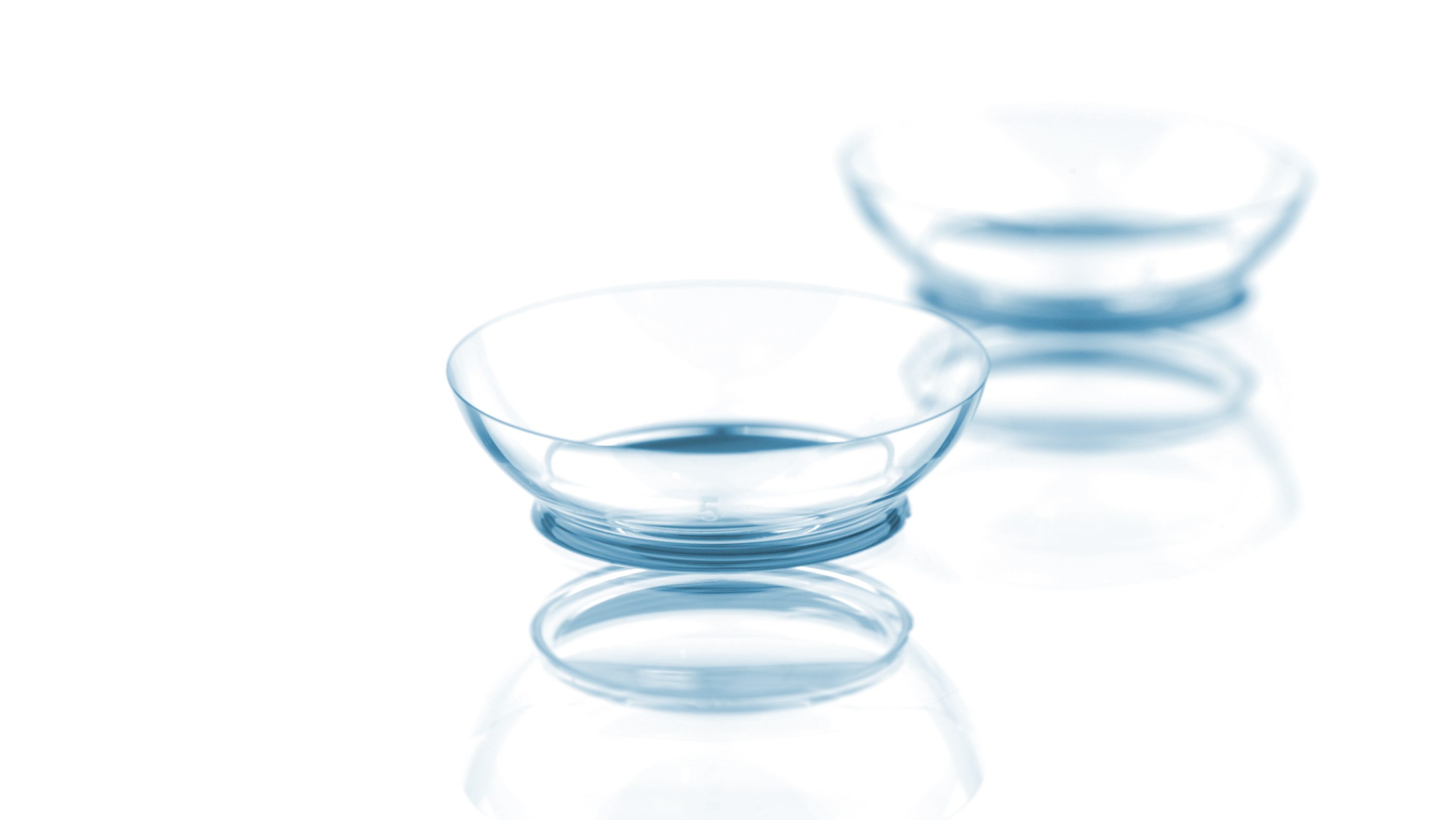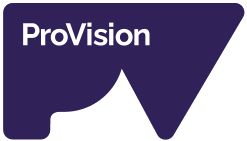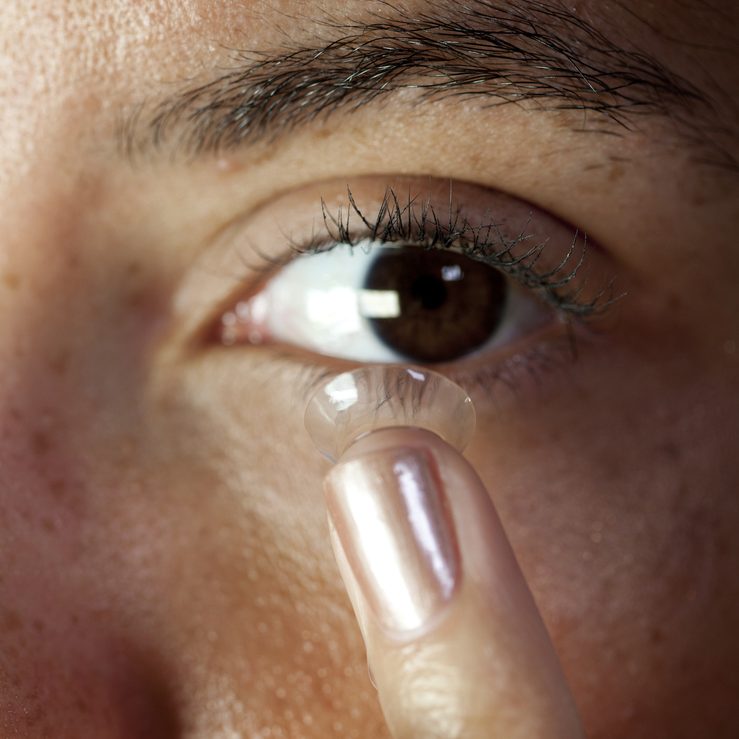
With the latest advancements in contact lens material and design, there is now a large range of contact lenses for different wear schedules, prescriptions and preferences. These include:
- Soft contact lenses
- Rigid contact lenses
- Daily disposable contact lenses
- Daily wear contact lenses
- Extended wear contact lenses
What’s more, these technologies deliver a new level of comfort and have made contacts a real option for just about any wearer of prescription glasses.
Contact lens materials
Let’s start by understanding the difference between soft and rigid (hard) contacts, and their impact on your eyes.
- Soft contact lenses are made of soft flexible plastics that contain water, allowing more oxygen to pass through the lens to the eye. Soft contacts are more comfortable than hard lenses.
- Rigid contact lenses are less comfortable in initial stages due to the rigidity of the plastics, yet more durable than soft lenses.
Contact lens options for different wear schedules
Traditionally, contact lenses are removed and cleaned nightly, ready for insertion the next day. Now with the latest advancements, contact lens wearers now have the option of daily lenses that can be thrown away or extended wear lenses that can be slept in for a recommended period.
- Daily disposable contact lenses (single day use): Inserted in the morning, worn through the day and discarded at night. A convenient and flexible solution that allows you to wear your glasses or lenses, depending on your plans for the day. A new pair every day also decreases the build up of deposits and reduces the chance of bacteria entering the eye.
- Daily wear contact lenses (fortnightly & monthly options): inserted in the morning, worn through the day and removed at night for cleaning. Replaced at the fortnightly or monthly intervals.
- Extended wear contact lenses: Providing the freedom and flexibility of not always having to remove your lenses, these contacts can be slept in on occasion or, depending on the advice of your optometrist, can be worn continuously for up to 29 nights. A hassle free alternative to laser eye surgery. They are an effective, affordable alternative to the risks of a permanent surgical procedure.
Ortho-k Contact lenses
Orthokeratology (ortho-k) involves gently reshaping the cornea with custom overnight contacts, to temporarily modify or eliminate refractive error (primarily short sightedness). The benefit? Clear unaided vision throughout the day without the risks of refractive surgery. To find out your eligibility for ortho-k lenses talk to your local independent optometrist.
Can my child wear contact lenses?
The short answer is yes. Provided your child is ready for the responsibility of contacts and your optometrist gives the green light, contacts can offer kids the freedom to participate in recreational activities without the hassle of glasses and can do wonders for a child’s self-esteem.

Discover the freedom of contact lenses
Have you been on the fence about contacts? Perhaps you’ve been told in the past that you can’t wear them, or worry about the logistics and potential discomfort of inserting lenses into your eyes. It’s time to ask again because the benefits are plenty and we don’t want you to miss out! Your optometrist will help you overcome any initial concerns and make sure you feel supported every step of the way.
Our independence – your benefit
One of the perks of seeing an independently-owned optometrist is that we have the flexibility to source the highest quality contact lens products from around the world. For you that means access to the best products on the market, as well as our expertise in selecting the best fit for your eyes.
Search for your local independently-owned optometrist via the button below, and ask for a contact lens consultation to get started on your contact lens journey.
Find your nearest optometrist now


